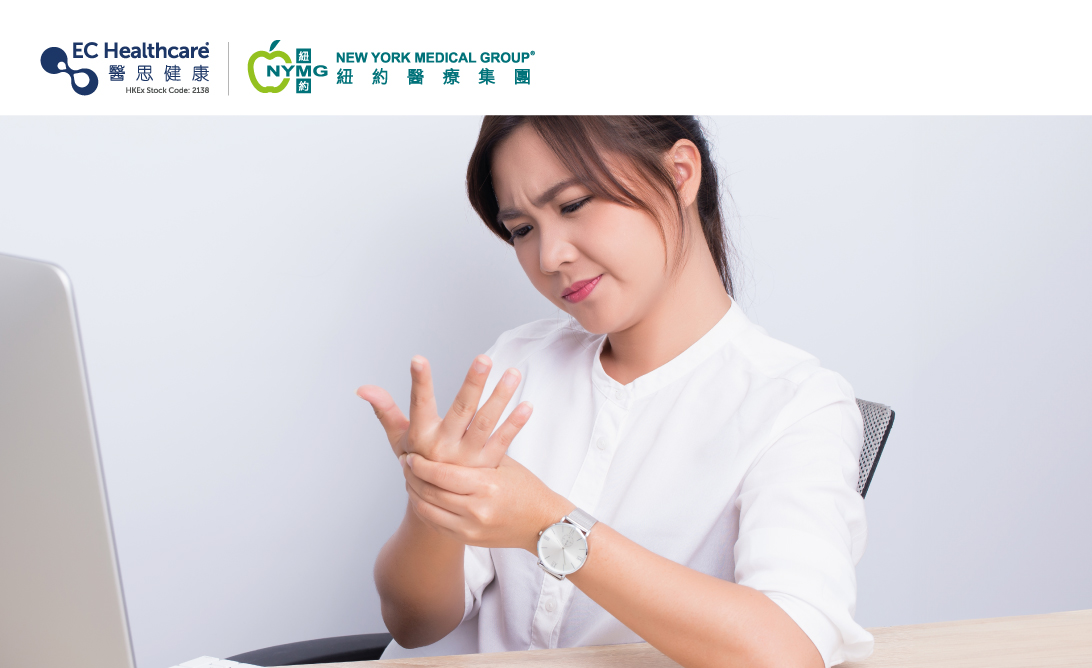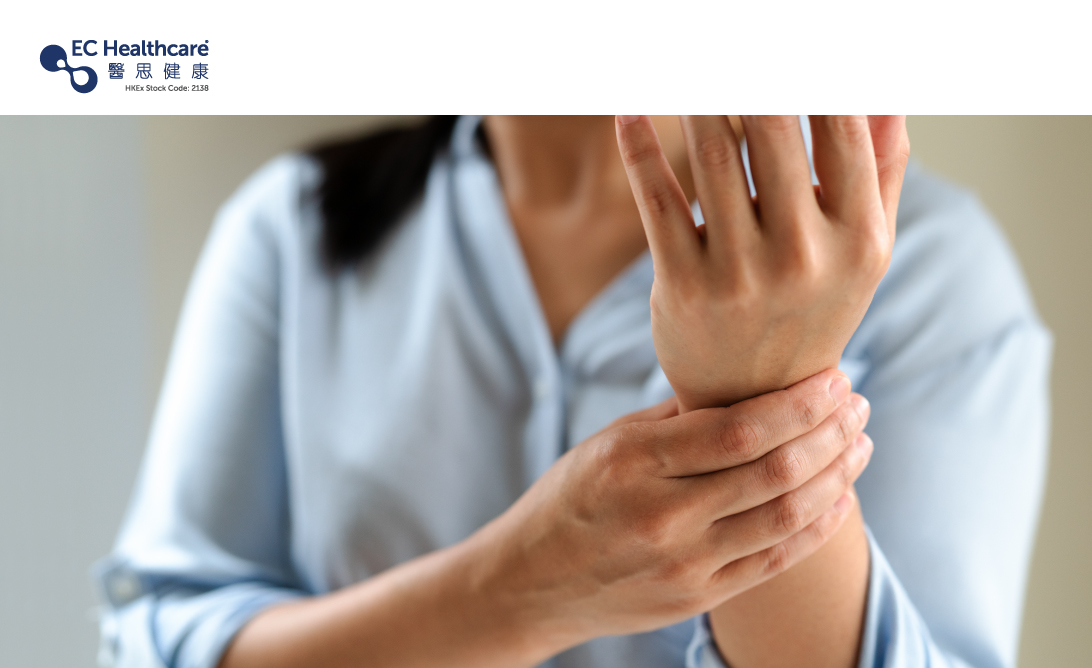Mommy Thumb: Not Exclusive to Moms! A Complete Guide to Its Treatment and Prevention


Mommy thumb is a common term for “stenosing tenosynovitis" or "de Quervain's disease", which is a prevalent issue in Hong Kong. It is especially common in new moms, who often feel a sharp pain in their hands due to holding their babies for too long, and housewives who experience wear and tear injuries due to heavy housework. Chiropractor Dr Steve Yun is here to explain the causes and symptoms of mommy thumb for everyone.
What are the causes of mommy thumb?
The medical field is unsure about its exact causes, but most cases are caused by long-term overuse of the wrist and repeated wrist motion involving the radius and ulna. This triggers swollen tendon sheath on the radius side (the thumb side) of the back of the hand, compressing the tendons and synovium of the extensor pollicis brevis and abductor pollicis longus. The tunnel where the tendon slides becomes narrowed with inflamed and swollen tendons and synovium, causing pain in the thumb side of the wrist. In severe cases, tendon adhesion can occur, limiting the movement of the thumb and wrist.
Mommy thumb is not exclusive to moms!
Since the condition is commonly referred to as mommy thumb, it is mistakenly believed that only mothers or housewives are susceptible to this condition. In fact, the high-risk groups for mommy thumb are not limited to women or housewives, but also include new parents, individuals who use mobile phones or tablets for a long time, people who knit or sew for a long time, waiters, hairdressers, plumbers, office workers who use the mouse and keyboard for a long time, golfers, etc.
In addition, when we use a mobile phone or tablet with one hand, we often use our thumb to touch the screen while fixing the other fingers and wrist to stabilize the device. In the long run, this can overwork the fingers and wrist, leading to conditions like mommy thumb or even carpal tunnel syndrome.
What are the symptoms of mommy thumb?
Patients will feel pain in the thumb side of the wrist, and the pain will intensify when the tendons are tightened while bending the thumb, rotating the wrist, making a fist, or gripping something. There may also be swelling on the thumb side of the wrist. If left untreated or not properly treated, the pain may spread to the entire thumb or the forearm. The pain can interfere with daily activities and work that require wrist motion, such as twisting a towel, using a mobile phone with one hand, typing, using a mouse, or even carrying shopping bags. Generally, the symptoms are most noticeable in the morning, and the pain will decrease after some activity. However, the pain will intensify again with repetitive movements of the thumb/wrist.
How can we treat mommy thumb?
When you experience pain, you should seek professional medical attention as soon as possible for examination and treatment. Try to avoid repetitive wrist/thumb movements to allow the inflamed area to rest. If there is swelling, apply an ice compress to the affected site. Anti-inflammatory and pain-relieving medications can be used to alleviate the symptoms, while steroid injections may be used to reduce serious inflammation and pain. For severe cases, surgical intervention may be necessary. In chiropractic care, a detailed examination is usually performed to rule out other conditions. Then, chiropractors will utilize manual therapy to correct misaligned joints and relax nearby muscles and soft tissues. Depending on individual conditions, cold/hot compresses, therapeutic ultrasound, radiotherapy, or shockwave therapy may also be used. Generally, with proper treatment and sufficient rest, the condition can greatly improve or recover within 1 to 3 months. However, if the patient does not rest properly, the condition can fail to improve and even recur later on.
2 exercises to prevent mommy thumb
To avoid the troubles caused by mommy thumb, prevention is better than cure. Apart from avoiding excessive and repetitive use of the thumb, you can also perform some stretching exercises from time to time to relax the relevant tendons.
Exercise 1: Place your hand on a table with the palm facing up. Lift the thumb and little finger, and gently press the tip of the thumb against the tip of the little finger, creating a stretching sensation in the base of the thumb and wrist. Hold for 6 seconds, then relax. Repeat 10 times.
Exercise 2: Extend your arm and make a fist. Bend the thumb into the palm of your hand and gently use the other hand to stretch the thumb and wrist downward, creating a stretching sensation in the thumb side of the wrist. Hold for 15 to 30 seconds, then relax. Repeat 2 to 4 times.

Related Brands


